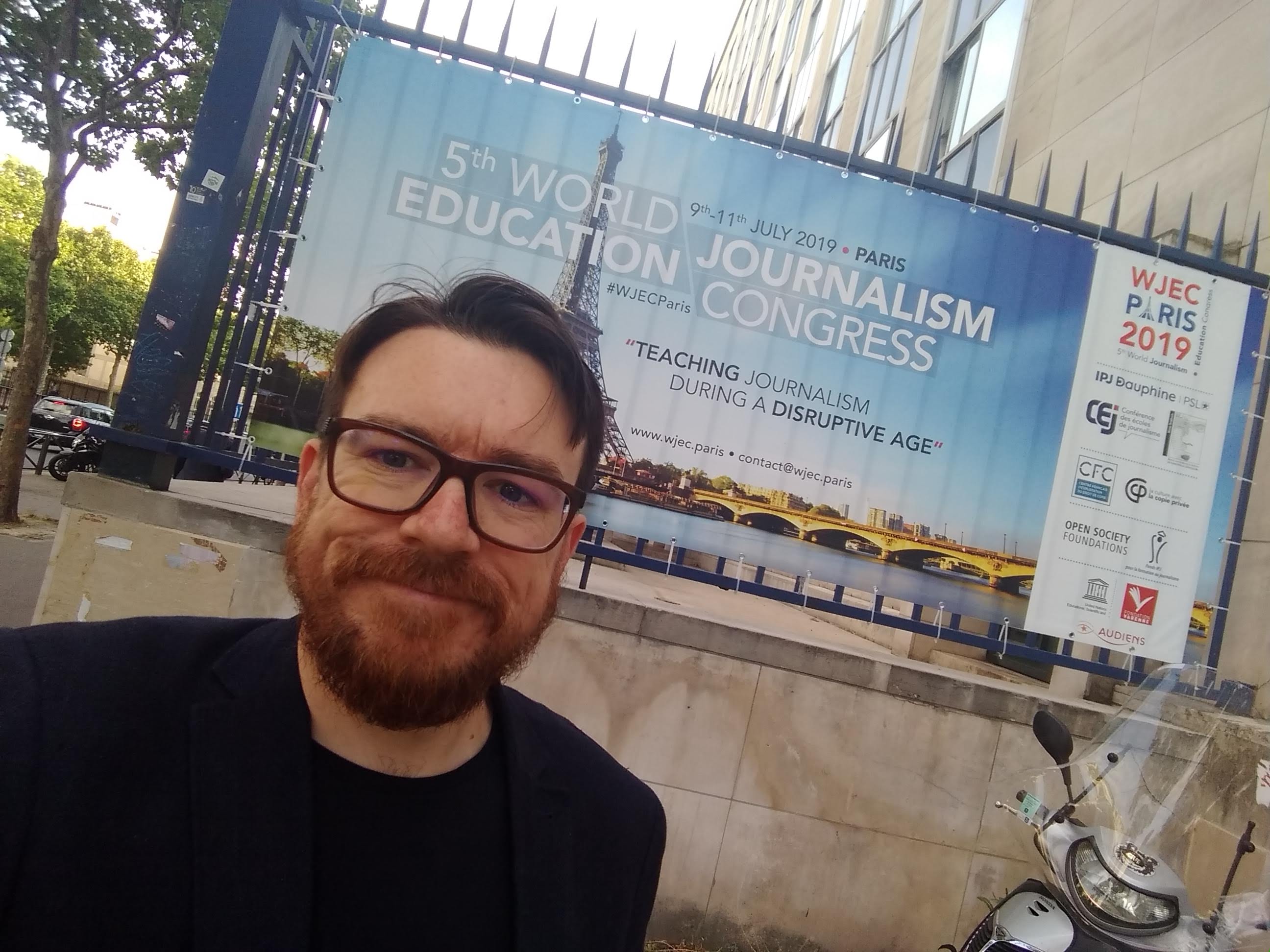WJEC Paris

Just a few days after a very successful datajconf I hit the road again, this time to head to Paris for the World Journalism Education Congress. An entirely different sort of conference, this aims to bring together educators from all over the world to discuss the past, present and future directions of Journalism education. The conference is big, with over 500 attendees, and has been running for over fifteen years (although it actually only takes place once every three years, so is on its fifth edition).
It was interesting to be attending an education conference outside of what I’d consider my usual area. I wasn’t the only Computer Scientist there (in fact there were a number of us), but of course the main focus was on general journalism education, and I’ll be the first to admit that while I have a good amount of knowledge of the area, I’m not an expert. However, the issue of Data Journalism (and to a smaller extent Computational Journalism) education loomed large over many parts of the conference, and on that topic I do have a very good amount of knowledge. We’ve been teaching in this area for over five years now, and it was great at the conference to be able to talk to other educators who’ve been teaching in a similar area to have our experiences and approaches validated. It was also very interesting to be able to contribute to discussions at the conference from a position of expertise, particularly in being able to help other people who were looking to start similar programs, or who are wanting to begin covering data journalism in a wider context in their own schools. I spent some time working within a syndicate looking at Data and Computational Journalism education, starting to move towards an understanding of the skills that are needed to be covered ‘as a minimum’ if you’re going to cover these areas within general journalism education. I was pleased to be able to introduce the idea of computational thinking to a number of educators, and to discuss the ways in which it can be useful as a thought process outside of computer science, and how well it maps to some of the processes involved in journalistic investigation and data driven journalism.
Data literacy, computational thinking and commmunicating data are the most important topics in data journalism education according to @fstalph, the rapporteur of data journalism syndicate.#WJECParis #data #journalism pic.twitter.com/Nqpi9GmUn3
— Turo Uskali (@TuroUskali) July 11, 2019
In fact, many of the conversations at the conference made me realise just how cutting-edge our MSc Computational and Data Journalism is, and how important the skills we teach are. A number of employers spoke to me about how they need people in the newsroom with the abilities that you get from our course, and many more other educators mentioned how they wish they could convince their own school to create a similar programme.
It's been a very interesting few days, and also very pleasing to see that the kind of teaching we've been doing here @CardiffJomec and @CompScienceCU for the last five years is now being taken on by more j-schools and i-schools all over the world
— MSc CompJ CardiffUni (@compjcdf) July 11, 2019
We’d actually had a paper accepted to the conference, presenting a reflective look at the first five years of the CompJ MSc. I’ll post more about the talk I gave (and the slides!) in a future post, but the talk went well and we had some interesting discussions afterwards. Unfortunately, the paper sessions were in my opinion some of the weaker sessions in the conference. There were many many parallel tracks going on at the same time, so that the audiences tended to be very small. At the same time, the conference app (which was very cool) only listed titles for the papers in each session, so it was hard to know what each session was going to be about, and in many cases the theming tended to be quite loose (maybe even a bit random!), so that papers in the same session didn’t always have a lot to do with each other. Still, with the number of submissions, papers and contributors it’s a massive logistical challenge to put such a programme together, so I think a little leniency is allowed!
Overall it was a really great experience. I met some lovely new people, caught up with a few old acquaintances, and I look forward to working more with them in the future.
Next: Mum
Previous: DataJConf III